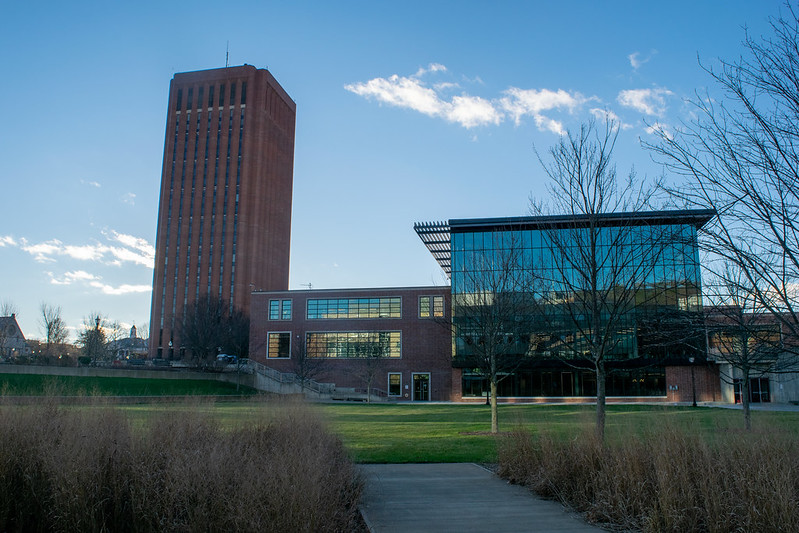While the University of Massachusetts would not be able to operate safely without its expansive testing operation, the routine sanitation of public areas also plays a vital role in keeping the community safe.
UMass plans to hold more in-person classes in the upcoming spring semester, making proper sanitation regimens even more essential to stop the potential spread of COVID-19.
The Daily Collegian reached out to Environmental Health and Safety at UMass to learn more about how the disinfection process has evolved and the role everyone plays in keeping the campus safe.
Students are still responsible for cleaning and disinfecting their room or suite, as well as any private bathrooms. This also means students provide their own cleaning and disinfecting supplies.
According to campus spokesperson Mary Dettloff, common areas and frequently touched surfaces are being cleaned more often by custodial staff in addition to the standard protocols for sanitation that were in place previously.
“Touchpoints such as entrance handles, handrails, elevator buttons, tables, and restroom stall handles/ doors are being cleaned at least once daily, five days a week,” according to Dettloff. This enhanced cleaning regimen has been enacted in all public spaces, including Hotel UMass, athletic areas, dining halls and residential halls.
This process is based on protocol developed by Environmental Health and Safety at UMass. The guidelines were determined based on information from the Massachusetts Public Health Department and the Centers for Disease Control and Prevention. The disinfectant used by UMass has been approved by the Environmental Protection Agency as effective against COVID-19.
Routinely disinfecting labs and classrooms will also rely on the participation of the staff, faculty, and students who utilize them.
“Supplies for disinfection are also supplied to classrooms, labs, and offices to disinfect shared equipment,” Dettloff explained.
Custodians and researchers are both responsible for disinfecting spaces in labs deemed high-touch areas. In the classroom, “Faculty is responsible for cleaning commonly-touched areas before class. Students will be asked to disinfect their desks or workspace,” Dettloff said. Faculty who are teaching in-person classes were provided a guide further explaining safety measures for the upcoming semester.
Beyond disinfecting physical surfaces, air ventilation also plays a crucial role in the sanitation regimen. UMass has developed a team made up of staff from Environmental Health and Safety and Physical Plant to determine the ventilation and filtration capacity of classrooms and public spaces based on the number of people and the function of the space.
“For buildings with mechanical ventilation, 100% fresh outdoor supply air is being provided where possible,” Dettloff said. In cases where air must be recirculated, MERV-13 or MERV-14 filters are in place.
As during the Fall 2020 semester, a Building Status Map will be released the week of Jan. 25 concerning which buildings will be open or locked for the spring semester. The mapwill highlight which buildings are open and routinely receive custodial care and which are locked with full or reduced custodial care.
Wearing a mask, washing hands, and getting tested regularly are all measures that help prevent the spread of the virus. Like wearing a mask, keeping UMass clean requires everybody to play a role and is crucial to allowing UMass to operate on-campus.
Grace Fiori can be reached at [email protected]. Follow her on Twitter at @grace_fiori.




















